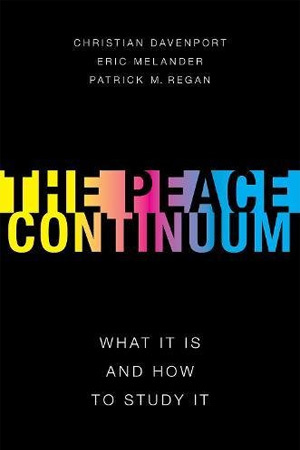The Peace Continuum

Oxford University Press, 2018
The idea of studying peace-over studying war, genocide and political violence (hereafter violent conflict) and then inferring about peace-has gained considerable traction in the past few years after languishing in the shadows of conflict for decades, but how should it be studied? The Peace Continuum offers a parallax view of how scholars think about peace and the complexities that surround the concept (i.e., the book explores the topic from different positions at the same time).
Toward this end, Davenport, Melander and Regan review existing literature and provide insights into how peace should be conceptualized, particularly as something more interesting than the absence of conflict. The authors provide an approach that can help scholars overcome the initial shock that comes with unpacking the 'zero' in the war-peace model of conflict studies. Additionally, the book will provide a framework for understanding how peace and conflict have/have not been related to one another in academic literature. To reveal how the Peace Continuum could be applied, the authors put forward three alternative ways that peace could be studied. With this approach, the book is less trying to control the emerging peace research agenda than it is trying to assist in and encourage thinking about the topic that has yet to be measured and analyzed in a way comparable to political conflict and violence. The authors help facilitate a veritable explosion of approaches and efforts to study peace.